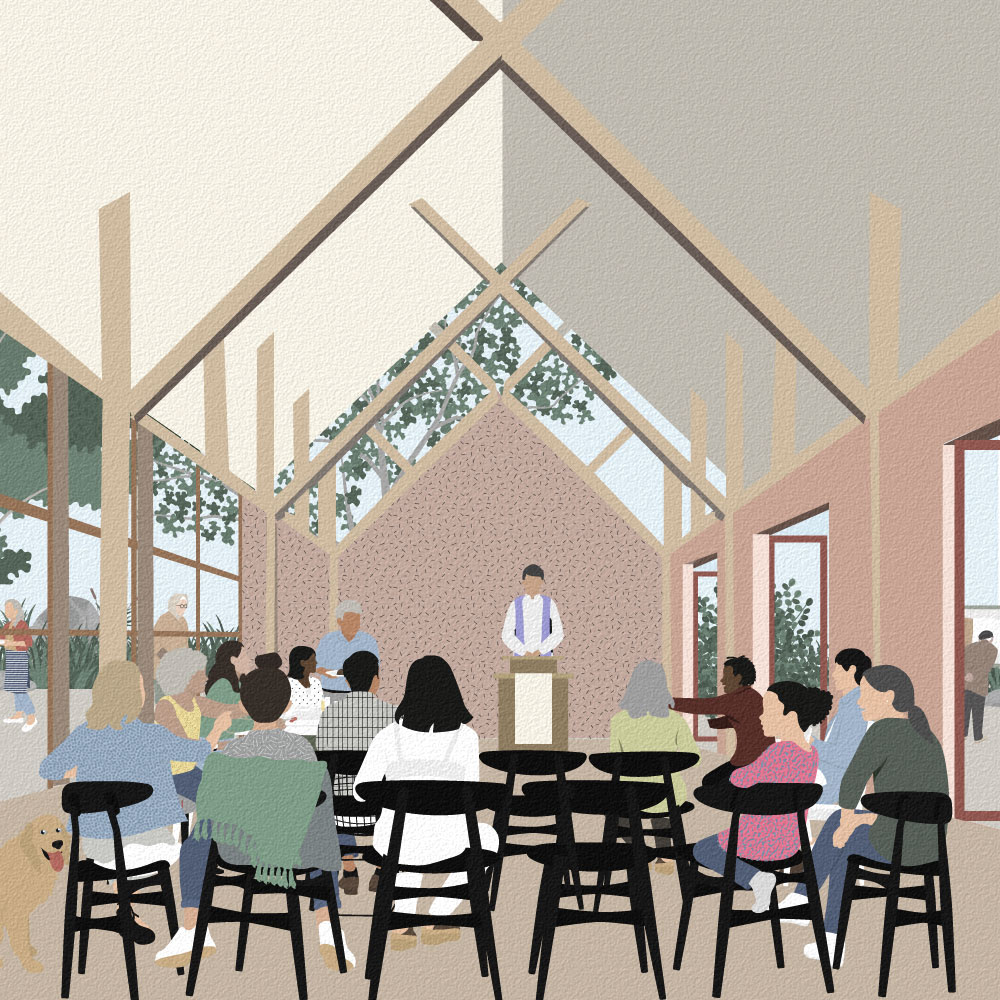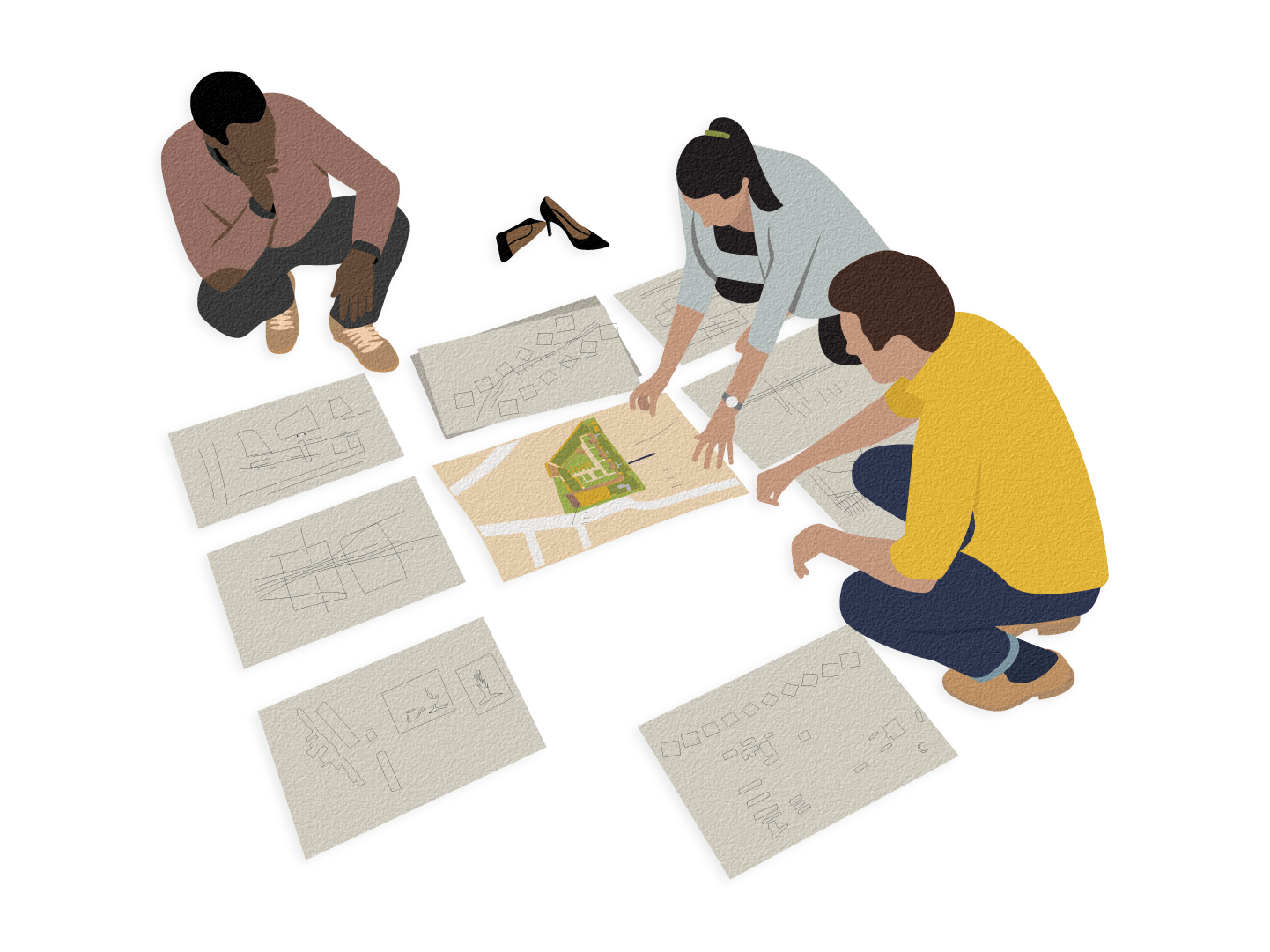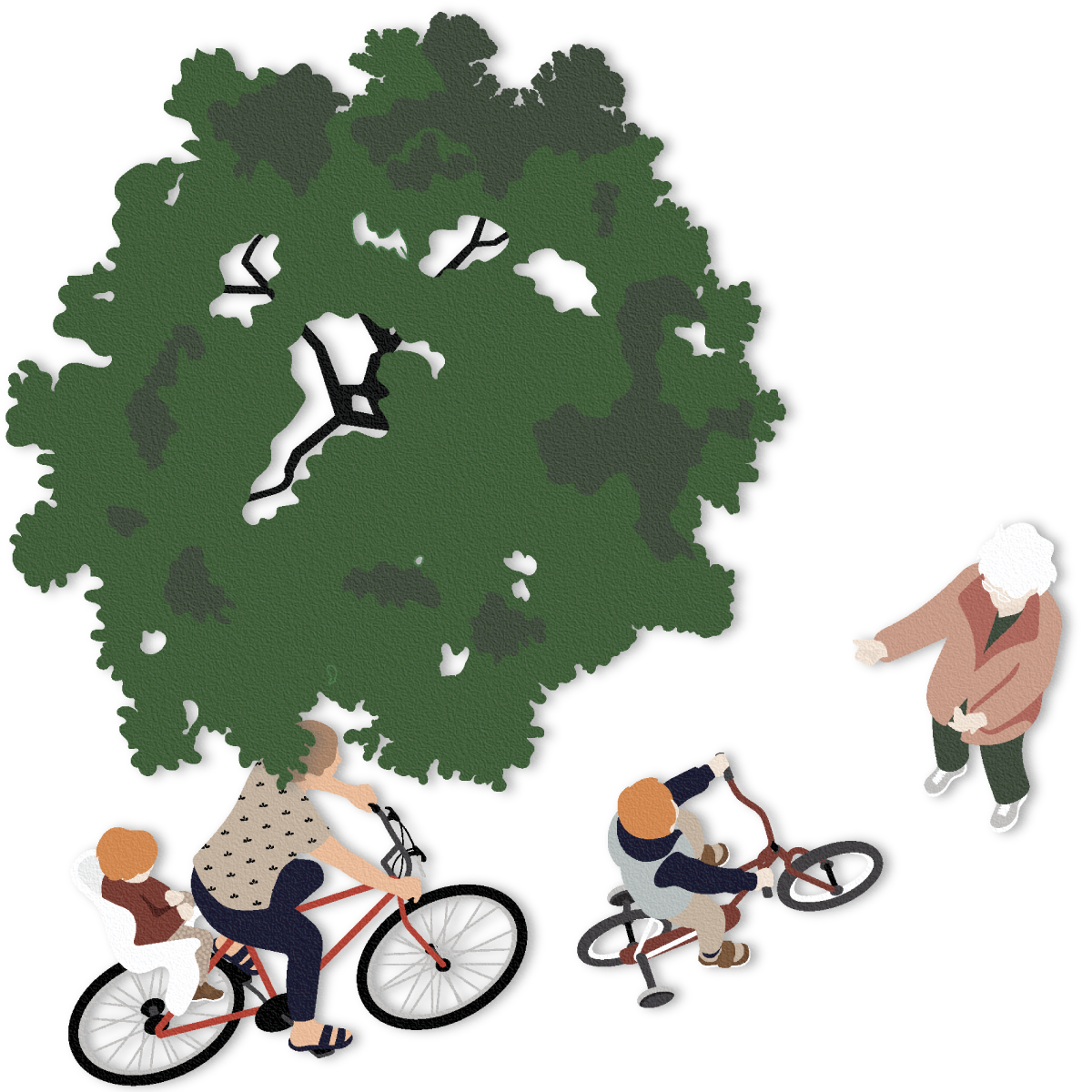The landscape of church membership and attendance has undergone significant social and demographic changes in recent years. According to a 2021 Gallup study, the share of Americans who belong to a church, synagogue, or mosque fell to 47% for the first time in 2020. Meanwhile, the study found, “66% of traditionalists — U.S. adults born before 1946 — belong to a church, compared with 58% of baby boomers, 50% of those in Generation X and 36% of millennials.”
Declining participation and aging congregations have become pressing concerns for many faith-based organizations. As the percentage of Americans who belong to a church, synagogue, or mosque continues to fall, it is clear that churches and other faith institutions must adapt and evolve to remain relevant and sustainable in the modern era.
Faith Groups Are Sitting on Potential
Despite these challenges, faith groups across the country sit on substantial land holdings that present unique opportunities for revitalization. Many faith-based organizations own significant amounts of potentially developable land, yet these properties often remain underutilized. Tax exemptions for religious institutions may contribute to a lack of motivation to optimize land use, but it is crucial for churches to question how they can best utilize their resources to further their mission and serve their communities.
Reimagining Church Assets for Cohousing
One promising solution is to reimagine church assets through the lens of cohousing. By repurposing church properties to create intentional living communities, faith groups can address pressing needs within their congregations and the wider community. Churches are uniquely positioned to support innovative housing models like cohousing, which prioritize social interaction, sharing, and multigenerational living.
The Alignment of Cohousing with Faith Values
At its core, cohousing aligns closely with many faith values. Defined by its emphasis on community connection, sharing, and sustainable living, cohousing offers a framework for creating vibrant, supportive neighborhoods that foster a sense of belonging and purpose. By adapting existing church facilities for cohousing purposes, faith groups can create spaces that serve both the congregation and the broader community. For example, a shared dining room where the cohousing community gathers for regular meals can also function as a sanctuary on days of worship, maximizing the use of the space while bringing people together in fellowship.
Navigating the Challenges of Church Property Repurposing
Of course, navigating the process of repurposing church property for cohousing is not without its challenges. Many faith groups may lack the expertise necessary to assess the full potential of their land holdings and envision how they can be adapted to meet evolving needs. Legal structures and financial resources must also be carefully considered to ensure the success and sustainability of any redevelopment project. Partnering with experienced professionals who specialize in faith-based cohousing and church building redevelopment can help congregations navigate these challenges with confidence.
Partnering with Township for a Sustainable Congregation Future
At Township, we understand the unique needs and challenges faced by faith groups seeking to repurpose their properties for cohousing. With extensive real estate and cohousing expertise, we seek to guide congregations to create missional living communities that align with their values and vision. We recognize that the process of redeveloping church assets can be daunting, which is why we are always open to providing some initial consultation and property assessment to help faith leaders understand the potential of their land holdings and take the first steps towards a sustainable future.
Reimagining Church Assets Through the Lens Of Cohousing
As faith leaders grapple with the changing landscape of church membership and attendance, it is clear that new solutions are needed that confront the changing demographics and role of faith in the US. By reimagining church assets through the lens of cohousing, congregations can create intentional living communities that foster connection, sharing, and multigenerational engagement while addressing pressing housing needs within their communities.
At Township, we seek to partner with faith groups to navigate the challenges of church property repurposing and create sustainable futures for their organizations. If you are a faith leader seeking to explore the potential of your church assets, we invite you to explore cohousing with us. Together, we can transform your church property into a thriving neighborhood that aligns with your mission and values, making a lasting impact on the lives of many.



